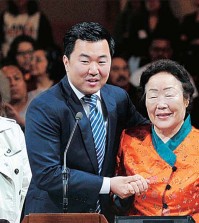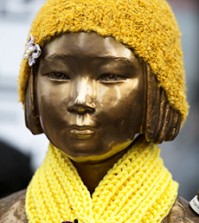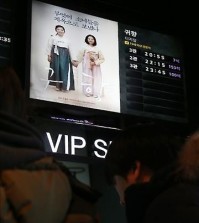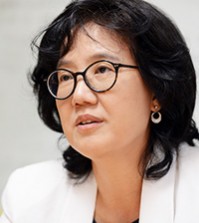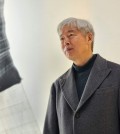- California Assembly OKs highest minimum wage in nation
- S. Korea unveils first graphic cigarette warnings
- US joins with South Korea, Japan in bid to deter North Korea
- LPGA golfer Chun In-gee finally back in action
- S. Korea won’t be top seed in final World Cup qualification round
- US men’s soccer misses 2nd straight Olympics
- US back on track in qualifying with 4-0 win over Guatemala
- High-intensity workout injuries spawn cottage industry
- CDC expands range of Zika mosquitoes into parts of Northeast
- Who knew? ‘The Walking Dead’ is helping families connect
Plan to nominate comfort women for Nobel Peace Prize
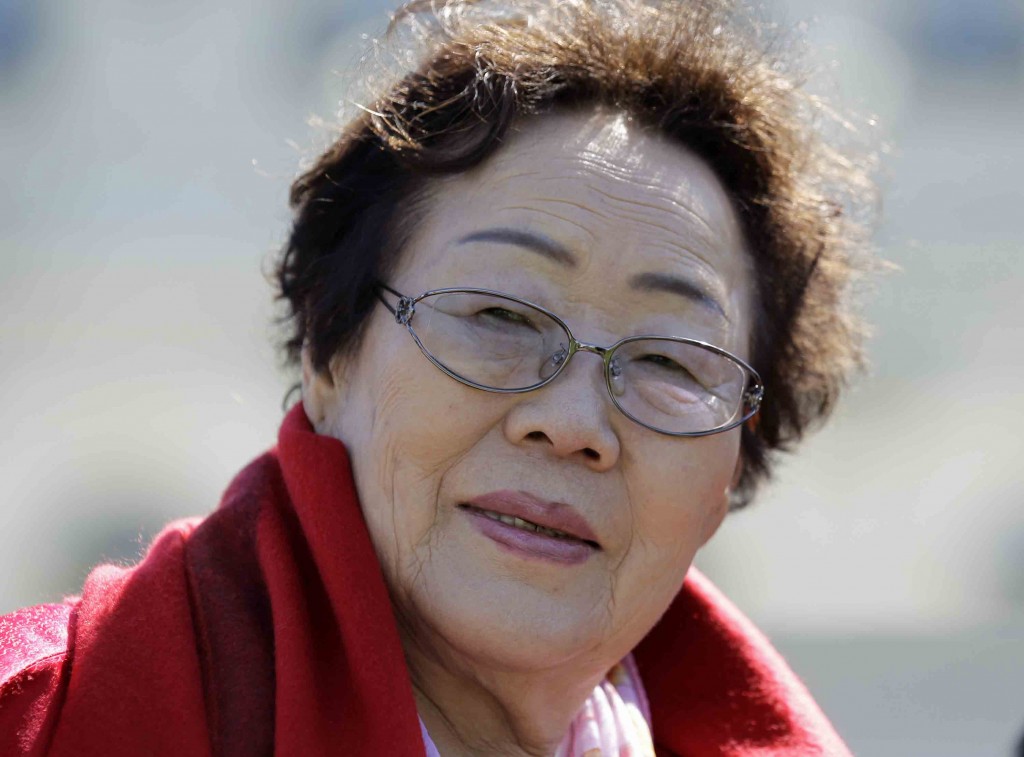
Lee Yong-soo of South Korea is seen of the West Lawn of the Capitol Hill in Washington, Tuesday, April 28, 2015. Yong Soo Lee is one of dozens of surviving “comfort women” from Korea other Asian countries that were forced into sexual servitude by Japanese troops. (AP Photo/Luis M. Alvarez)
By Kim Se-jeong
Two women’s advocacy groups will nominate 53 Korean survivors of sexual slavery during World War II for the Nobel Peace Prize, activists said Wednesday.
“We are now discussing the plan because we believe the victims deserve the prize,” said an official from the Women’s Forum for Peace and Diplomacy (WFPD), one of the two organizations.
She would not elaborate, saying the plan was still in its initial stages. The Korean Women Lawyers Association is the other organization.
The announcement was made as Japanese Prime Minister Shinzo Abe is visiting the United States. The victims have urged him to apologize for Japan’s involvement in sexual slavery, but he refused to do so, saying only that he shared their pain.
Seeking to have the women nominated for the Nobel Prize is part of the civic groups’ efforts to raise global awareness of the issue. The move is also to recognize the women’s ordeals, to enhance women’s rights, to improve regional peace and to remind Japan that it has never addressed the comfort women issue, according to WFPD.
The 53 survivors were among almost 200,000 women forced to provide sex to the Japanese military before and during the war.
The number of survivors is declining, with two having died this year.
Lee Yong-soo, 87, Kim Bok-dong, 90, and Gil Won-ok, 85, are particularly active. They are regulars at a weekly protest in front of the Japanese Embassy in Seoul. They have also traveled abroad to testify about their ordeals.
This week, Lee is in Washington, D.C. in a campaign to undermine Abe’s visit. Kim Bok-dong visited Japan last week before Abe’s departure. Lee attended conferences and met local media outlets.
The nomination initiative drew mixed public reactions.
“Yes, it is good to raise awareness about the issue,” said a professor who teaches women’s studies at a university in Seoul.
But Han A-reum, 35, from Seoul, said, “I am not sure whether they fit into the peace category. But, it will work to pressure Japan.”
The Nobel Peace Prize is regarded as the world’s most prestigious award. According to the Norwegian Nobel Committee’s website, the deadline for the 2015 nomination was Feb. 1. The committee received 276 candidates. The short list will be announced in May, and the winners will be chosen in October.
The candidates need qualified nominators, such as members of national assemblies and governments, members of international courts, professors and directors of peace research institutes, Nobel Peace Prize winners, active and former members of the Norwegian Nobel Committee and former advisers to the committee.
As a private organization, WFPD is a qualified nominator. Members include former minister of culture Shin Nak-gyun and UNESCO Korea Commission former secretary general Lee Sam-yeol.
The group is known for its programs designed to enhance women’s rights and empower women in and outside Korea.







